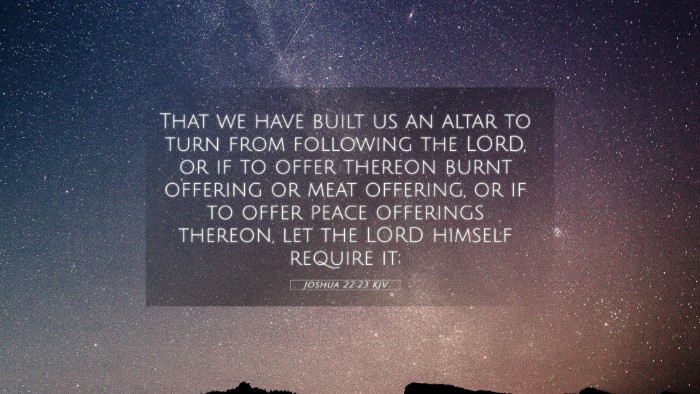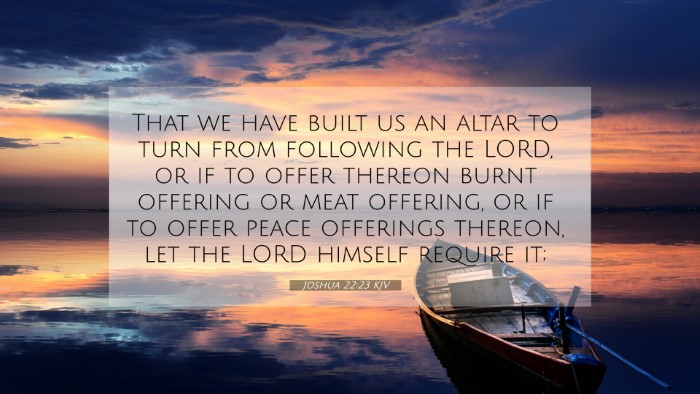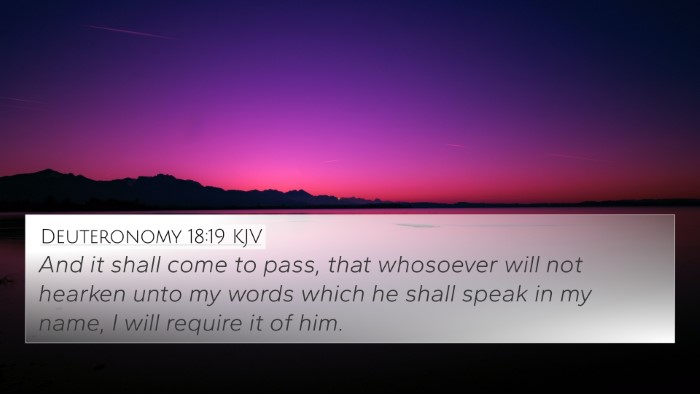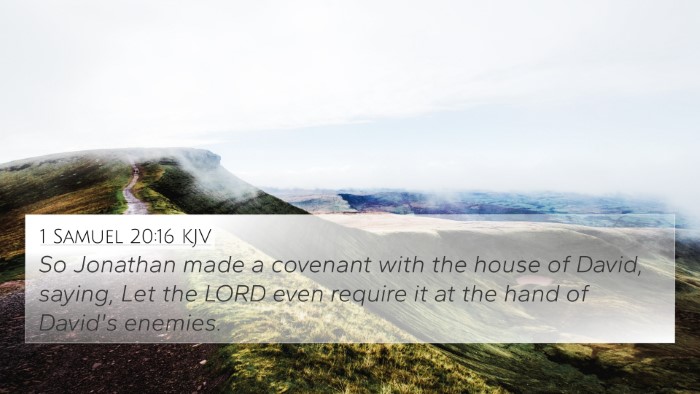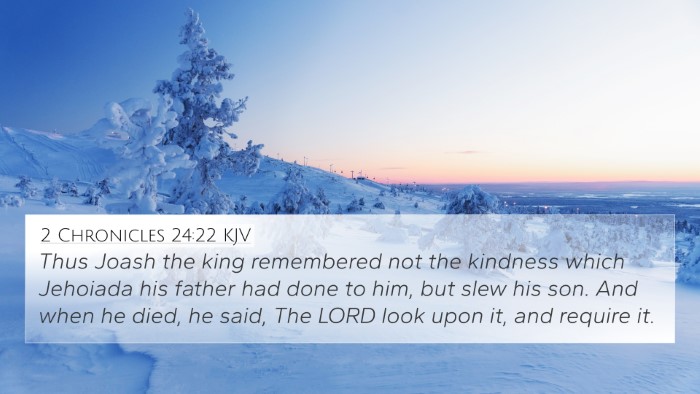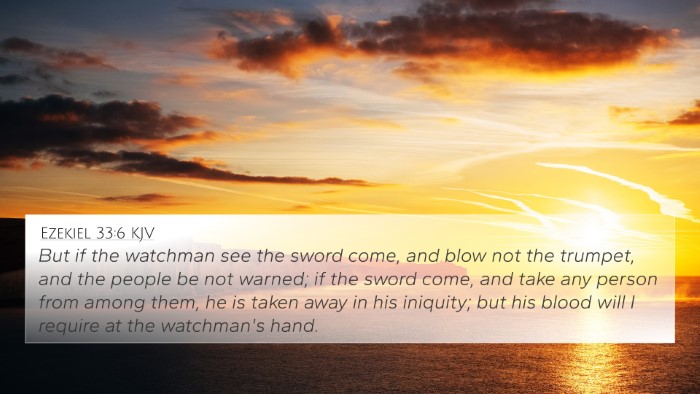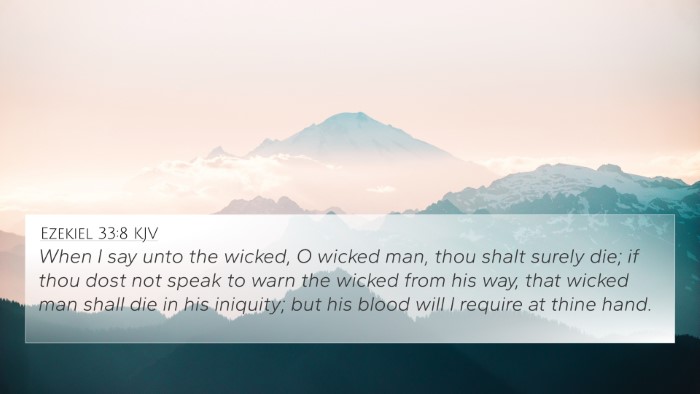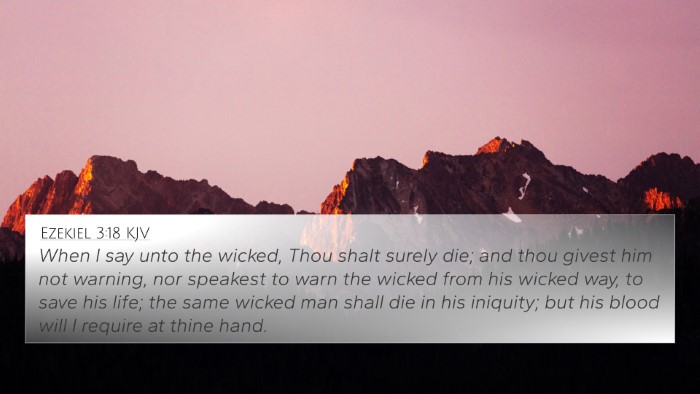Understanding Joshua 22:23
Joshua 22:23 states: "That we may be in nowise guilty of this matter, but that we may take an offering of the sacrifices of the Lord." This verse is situated in a complex narrative following the Israelites' conquests and serves as a testimony to the care and deliberation taken by the tribes concerning their commitments to worship and community.
Summary of Exegesis
The leaders of the eastern tribes (Reuben, Gad, and half of Manasseh) expressed their concern about maintaining their allegiance to God’s commandments and the potential implications of their actions after building an altar that may be misinterpreted as leading their people away from the God of Israel. The verse emphasizes their intention to uphold their commitment and bond with their brethren across the Jordan and assures them they remain true in their worship.
Commentary Insights
- Matthew Henry: Henry highlights the theme of unity among the tribes, emphasizing that the eastern tribes acted with caution and integrity. Their desire to avoid guilt speaks to the seriousness with which they regard their worship and relationships with God and each other.
- Albert Barnes: Barnes notes that the primary focus here is on the purity of worship. The altar, though legitimate in purpose, raised concerns about possible misunderstandings regarding allegiance to Yahweh. The diligence of the eastern tribes in clarifying their intentions reflects a biblical principle of maintaining the truth in community and worship.
- Adam Clarke: Clarke reflects on the significance of the altar as a testimony. He points out that their actions were not only a matter of personal worship but involved their identity and standing as part of God's covenant people. Their concern about guilt reveals a deep understanding of their role within the broader community of Israel.
Connecting Themes and Biblical Cross-References
This verse is intricately linked to various biblical themes, especially those concerning covenant fidelity, worship, and community integrity. Here are some notable cross-references that help expand its meaning:
- Deuteronomy 12:5-7: Instructions about where and how to worship God highlight the importance of a unified worship space.
- Joshua 1:16-18: The emphasis on loyalty and obedience within the community showcases the importance of unity among all the tribes of Israel.
- Exodus 20:24: God's command regarding altars adds context about acceptable worship practices.
- Numbers 14:9: The call to remain faithful to God despite the challenges emphasizes the seriousness of allegiance.
- Hebrews 10:24-25: The New Testament underscores the importance of community and mutual encouragement among believers.
- Ephesians 4:3: Paul calls the church to unity, reflecting the call to remain joined in worship and purpose.
- 1 Corinthians 12:12-27: Discusses unity in diversity within the body of Christ, echoing the sentiments of Joshua 22:23 about community integrity.
- Jeremiah 31:31-34: The new covenant highlights the ongoing requirement for fidelity to God, resonating with the concerns of the tribes.
- Matthew 5:23-24: Christ’s teaching about reconciliation mirrors the theme of maintaining relationships and intentions within the community.
- Philippians 2:1-2: Calls for unity in the faith correlate with the message of Joshua 22:23 about the intentions behind actions taken within faith communities.
Inter-Biblical Dialogue and Thematic Connections
Joshua 22:23 connects to broader themes throughout Scripture regarding worship, community, and fidelity to God. This current scenario is not unlike the situations faced by the early church as described in the New Testament, where unity and a pure form of worship were essential amidst diversity.
Following the Threads of Scripture
This verse encourages readers to engage in a comparative Bible verse analysis whereby one can explore the detailed connections between related scriptures. Understanding the nature of worship and the communal identity among God's people serves as an essential theme across both the Old and New Testaments, offering a comprehensive understanding of biblical teachings.
Practical Application and Reflection
For modern believers, this scripture calls for introspection regarding the nature of community within the church and the individual’s role in maintaining unity and fidelity to God’s commands. Engaging with tools for Bible cross-referencing can enhance one’s study and provide deeper insights into the connections within scripture, enriching both personal faith and communal understanding.

